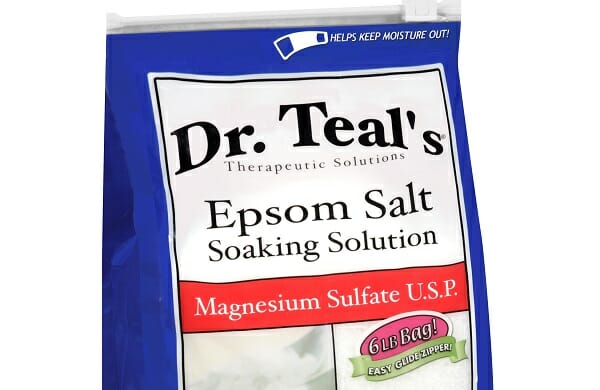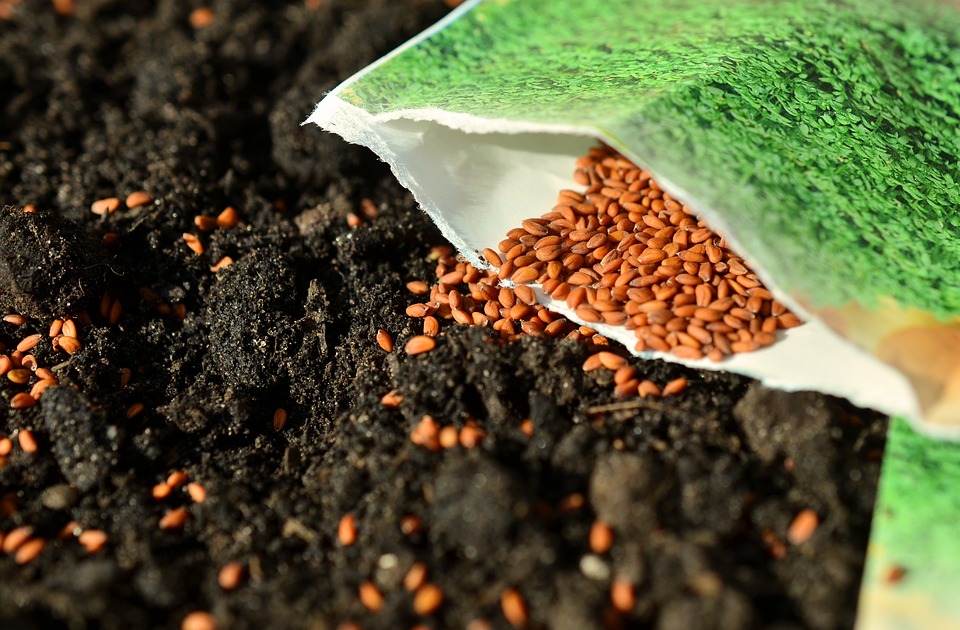First, let’s dispense with its odd and utterly confusing name. Although it sounds like it could be a relative of gypsum, aka calcium sulfate, Epsom salt is actually named after Epsom, England, where its healing benefits were first discovered.
Epsom salt also doesn’t qualify as a salt, by definition. However, the name has stuck and likely will remain.
Here are some of the many reasons why you should never be without this essential homesteading basic.
Diatomaceous Earth: The All-Natural Livestock De-Wormer!
The magnesium in Epsom salt provides a wide array of benefits, including relaxing muscles, lowering blood pressure, maintaining healthy blood sugar levels, producing energy. and manufacturing proteins. You also need magnesium to strengthen bones, to conduct nerve impulses, and for maintaining healthy heart rhythm. And don’t forget about its sulfur component, which helps with important detoxification pathways.
External Uses
The most common way to use Epsom salts is to dissolve some in a warm bath. It readily absorbs through your skin and starts circulating through your body, helping wherever it is needed. One study showed that after seven daily Epsom salt baths, magnesium blood levels increased by 34.7 percent. Epsom salt is a convenient, enjoyable and inexpensive way to keep your magnesium levels up – while relaxing and after a hard day’s work.
Your first-aid plan for cold and flu season should include an Epsom salt bath. Not only will it alleviate your flu-achy muscles, but the extra magnesium can quell inflammation and boost your immune system to help you fight off the bug.
As a foot soak, Epsom salt helps treat and prevent athlete’s foot. You also can rub Epsom salt directly on your skin to take the itch out of mosquito bites and poison ivy, to soothe mild sunburns and to soften the skin to help remove splinters.
Around the Home and Homestead
Its abrasiveness makes Epsom salt a safer alternative to harsh commercial products for cleaning kitchen and bathroom surfaces. Add a little to your washing machine with each load to soften clothes and to prevent mildew, soap scum and bacteria from accumulating.
Use Epsom salts as a garden soil amendment. After all, if it’s not in the soil, it’s not in your food! Magnesium nurses plants through transplant shock, helps seeds germinate better, and makes your fruits and vegetables tastier and more nutritious.
How do you use Epsom salt on the homestead? Share your tips in the section below:
Sources:
https://ods.od.nih.gov/factsheets/Magnesium-HealthProfessional/
https://www.omicsonline.org/magnesium-influence-on-stress-and-immune-function-in-exercise-2161-0673.1000111.pdf











